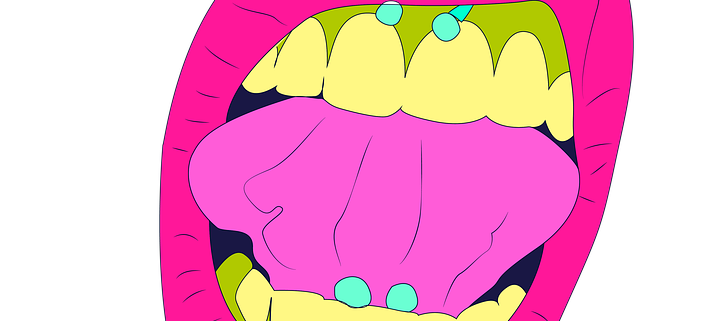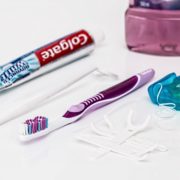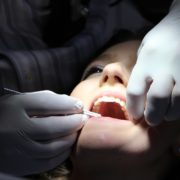Piercing and Oral Health
What is an oral piercing?
Oral piercings usually consist of a barbell through the tongue or labret (the space between the lower lip and chin). Other common oral piercing locations include the lips, uvula and cheeks. The jewellery comes in different styles, including studs, barbells and rings. They can be made of stainless steel, gold, titanium, plastic or nickel.
What problems can an oral piercing cause?
It depends on the location of the piercing. If it’s through the tongue or lip, or below the tongue, there’s a risk of teeth chipping from the stud at the end of the barbell. This can happen if you don’t shorten the bar after the initial swelling goes down.
Piercings through the floor of the mouth below the tongue or through the tongue have the highest risk of developing into a serious infection. There is also a risk of nerve or muscle damage from the piercing. It is important to always go to a certified and experienced peircer. Certain labret piercings can damage gum tissue.
The jewellery can cause gums to recede and leave the tooth root more vulnerable to tooth decay and gum disease.
How can I lower the risks?
If you’re thinking about getting a piercing either close to or within the mouth, talk to your dentist first – and keep these safety measures in mind:
- Check out the cleanliness of the place doing the piercing. Do they have an infection-control policy posted? How do they sterilize their equipment?
- Ensure that the person performing the piercing is experienced and uses strict infection-control practices to avoid serious infections such as hepatitis B and C, and HIV. For example, do they use new needles and gloves for each customer?
- Plastic jewellery is less damaging than metal, and nickel may cause allergic reactions and cause piercings to migrate.
- Ask for detailed after-care instructions.
- Disinfect your jewellery regularly and brush the jewellery the same as you would your teeth.
- If piercings are close to the teeth, make sure the ends, or even the entire stud, are made of plastic.
- Get immediate medical or dental attention if you experience too much bleeding, swelling or pain after a piercing, or if there is any evidence of infection (a bad odour or fluid coming from the piercing, for example).
- Visit your dentist regularly so they can closely monitor the piercing and any potential damage to teeth and gums.
- With clean hands, check on the tightness of your jewellery. This can prevent swallowing or choking if the jewellery comes out.
- Don’t play with the jewellery once it’s been placed in your mouth. This increases your chances of getting an infection and can prevent healing.










